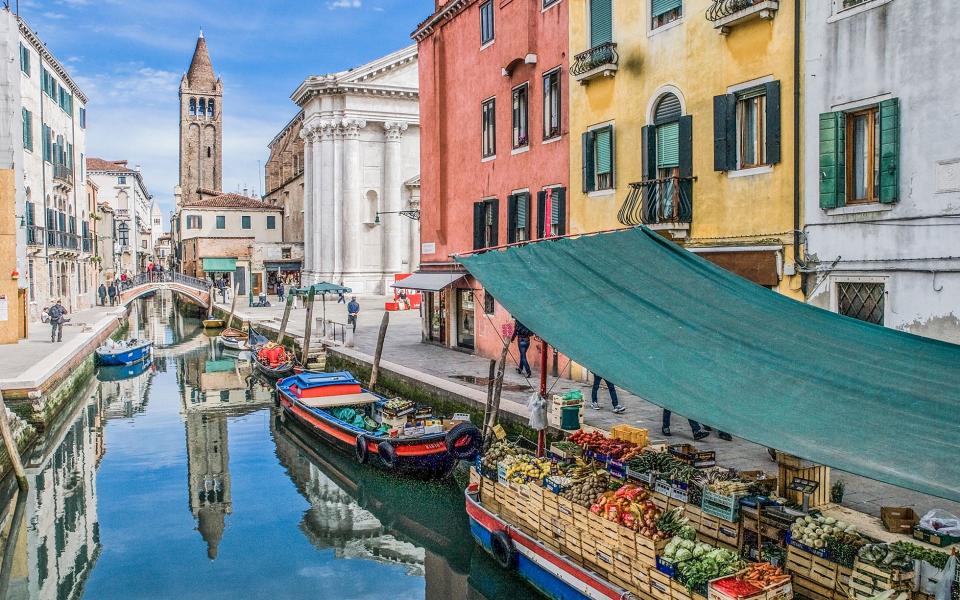Pandemic heralds death of the city break and return of the two-week beach holiday

New data has revealed drastic shifts in UK travel behaviour since the onset of the coronavirus pandemic.
The research, from airport transfer and sightseeing company Welcome Pickups, analysed UK traveller behaviour from March to the end of September this year, comparing it to the same period in 2019. Among the changes, it found an increase in longer trips and a move towards beach holidays, marking a nostalgic return to the way Britons used to travel. However, other findings, such as the rise of solo breaks, suggest that the pandemic is sparking a number of unexpected trends that could have a long-lasting impact on the way we travel.
A return to two-week holidays
The company observed that in the last six months 14 per cent of holidaymakers went away for more than seven days, compared to just 6 per cent during the same period last year. This could be explained by pent-up demand (and holiday days) following lockdown or increased flexibility in terms of working remotely. The Government’s ever-shifting travel restrictions may have also played a part, with some booking longer trips to make a potential 14-day quarantine on return feel worth it.
Even among those holidaying in the UK, lengthy stays have surged in popularity. Over the summer, grand Ayrshire hotel, Glenapp Castle, noted that bookings of seven nights or more were up 88 per cent, while holiday rental company Sawday’s also saw a significant increase in long-let enquiries.
Of course, two-week summer holidays were the norm until people started travelling more regularly in the 21st century with the onset of cheap flights, increasingly preferring to take multiple mini-breaks over one long trip. Pre-pandemic, environmental concerns had already prompted some to rethink this approach, which indicates that the trend is here to stay.
Indeed, online travel agent Opodo has noted that there is growing demand for holidays of more than 15 days well into 2021. Brands are also looking to meet this shift, with Generator, the hip hostel chain, launching a new ‘Stay Longer, Save More’ package, which promises 30 per cent off per night when booking for seven nights or more, with discounts increasing the longer the visit. It says the reduced rates mean that guests “can stay in some of world’s most sought-after cities for half the average cost of their monthly rent.”
The death of the city break?
Welcome Pickups’ findings suggest that the previously popular city break is now no match for a classic beach holiday. The percentage of those booking a sun and sea-based break rose to 54 per cent, compared with 38 per cent between March and September last year.
The recently relaunched online-only Thomas Cook has drilled down into this trend and says it has seen a huge rise in millennial couples – usually a key city break demographic – booking resort holidays. In September, the tour operator observed that 43 per cent of visitors to its website were under the age of 35, and more than two-thirds couples. Those who booked were more likely to splash out on five-star holidays in the likes of Greece and Turkey (until it was dumped from the Government’s quarantine-free list).
Welcome Pickups’ data also highlights the decline in popularity of foodie trips, which are often a key tenet of city breaks. It says that ‘exploring local cuisine’ as the main reason for booking a holiday has dropped from 18 per cent to 10 per cent. These figures have likely been impacted by the ongoing restrictions on hospitality businesses that mean exploring neighbourhood tapas bars or trattorias has somewhat lost its lustre. In contrast, more self-contained beach holidays could allow for a psychological break from the pandemic.
However, a spokesperson for Opodo thinks the change could be overstated, saying: “Our recent consumer survey does indicate that the most dreamed-of destination is the beach, though city breaks actually remain popular.”
This could be due to slashed hotel rates, or a desire to see destinations such as Venice and Rome without the usual crowds.

The rise of solo travel
According to Welcome Pickups, one of the largest shifts has been in solo travel, which it says now accounts for 26 per cent of British holidays, up from 16 per cent in 2019.
An online survey conducted by Opodo over the summer also backs up this trend and indicates that the change is particularly marked in the UK. In Europe, it states that the appetite for solo and partner/spouse travel is equal at 41.2 per cent, but when it comes to British respondents, 47.6 per cent reported an interest in solo travel compared to 37.6 per cent with a partner/spouse.
Obvious explanations include social distancing requirements, but there is an argument that the monotony of lockdown may have pushed travellers to be more adventurous than they previously would have been.
Tapping into this trend, Uniworld Boutique River Cruises, which operates luxury boat tours across Europe, Asia and Egypt, has waived its usual single supplement for 23 of its 2021 departures.
Last-minute bookings
While some of these trends illustrate a back-to-basics approach to travel, many tour operators have observed that due to the volatile nature of the pandemic, ever-changing travel restrictions and some people’s desperation to get away, eleventh-hour bookings have soared.
Last Thursday, when the Canary Islands were added to the UK’s quarantine-free list, Love Holidays saw a spike in bookings of 250 per cent between the official announcement at 5pm and midnight. Similarly, by Friday, flights to Tenerife departing on 24 October had rocketed from £26 return to more than £300, as travellers scrambled to secure a last-minute holiday.
British Airways has even launched a new series of weekend break late deals, inviting holidaymakers to book only a day or two before they travel.

